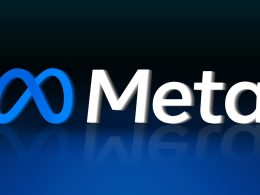Introduction
The Metaverse has emerged as a captivating concept that holds the promise of transforming the way we interact with digital experiences. As Meta (formerly Facebook) embarks on this journey, an intriguing phenomenon unfolds – Meta employees find themselves in the role of selling a future in the Metaverse while experiencing a disconnect from it in their present lives. In this article, we will explore the complexities surrounding this disconnect, examining the motivations, challenges, and implications faced by Meta employees as they navigate this unique situation.
The Metaverse: A Vision of Possibilities
The Metaverse represents a virtual reality realm where individuals can engage in immersive digital experiences and connect with others. It offers a future where the boundaries between physical and digital worlds blur, creating new avenues for communication, work, and social interaction. However, the question arises: How do Meta employees reconcile their role in selling the Metaverse while experiencing a disconnect from it in their daily lives?
The Dual Role: Advocates and Spectators
Meta employees find themselves in a dual role – as advocates promoting the Metaverse to the world and as spectators observing its development from the sidelines. While they understand the potential of this digital frontier, they may not actively participate or fully immerse themselves in the Metaverse. This disconnection can create a unique set of challenges and considerations for employees.
Motivations and Authenticity
The motivations driving Meta employees’ involvement in promoting the Metaverse can vary. Some may be genuinely passionate about the vision and possibilities it offers, while others may view it as part of their professional responsibilities. However, the question of authenticity arises when employees are tasked with selling a future they may not actively embrace themselves. Striking a balance between promoting the Metaverse and aligning with personal beliefs and experiences becomes crucial.
Challenges and Bridge-building
Navigating the disconnect between Meta employees and the Metaverse presents several challenges. Employees must develop a deep understanding of the Metaverse’s potential and limitations to effectively communicate its value to users. They need to bridge the gap between their own experiences and the aspirations of those who may be more enthusiastic or skeptical about this emerging digital landscape. This requires empathy, active listening, and an ability to address concerns and questions with transparency.
Creating Alignment and Future Engagement
To bridge the disconnect and create alignment, Meta can foster an environment that encourages employees to engage with the Metaverse on a personal level. By providing opportunities for exploration, experimentation, and sharing of experiences within the Metaverse, employees can develop a deeper understanding and connection with the digital realm they promote. This firsthand engagement can enhance authenticity, credibility, and the ability to effectively communicate the benefits and possibilities of the Metaverse.
Conclusion
The disconnect between Meta employees and the Metaverse raises intriguing questions about the role they play in selling a future they may not actively live in. Acknowledging and addressing this disconnect is essential for Meta to build trust, authenticity, and a deep understanding of the Metaverse’s potential. By creating opportunities for personal engagement, fostering dialogue, and encouraging employees to align their beliefs and experiences with the Metaverse, Meta can bridge the gap and empower employees to authentically champion this evolving digital landscape.












